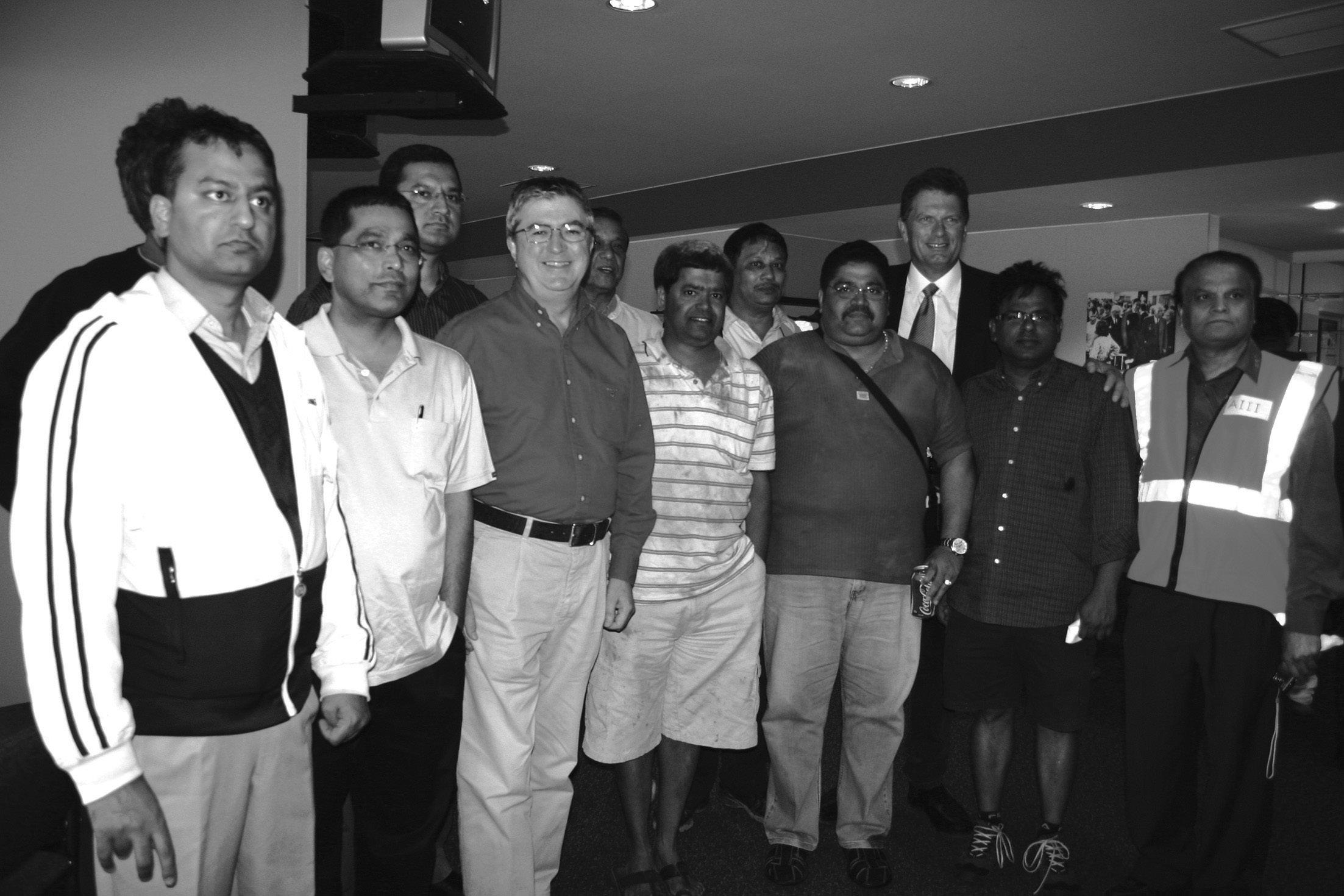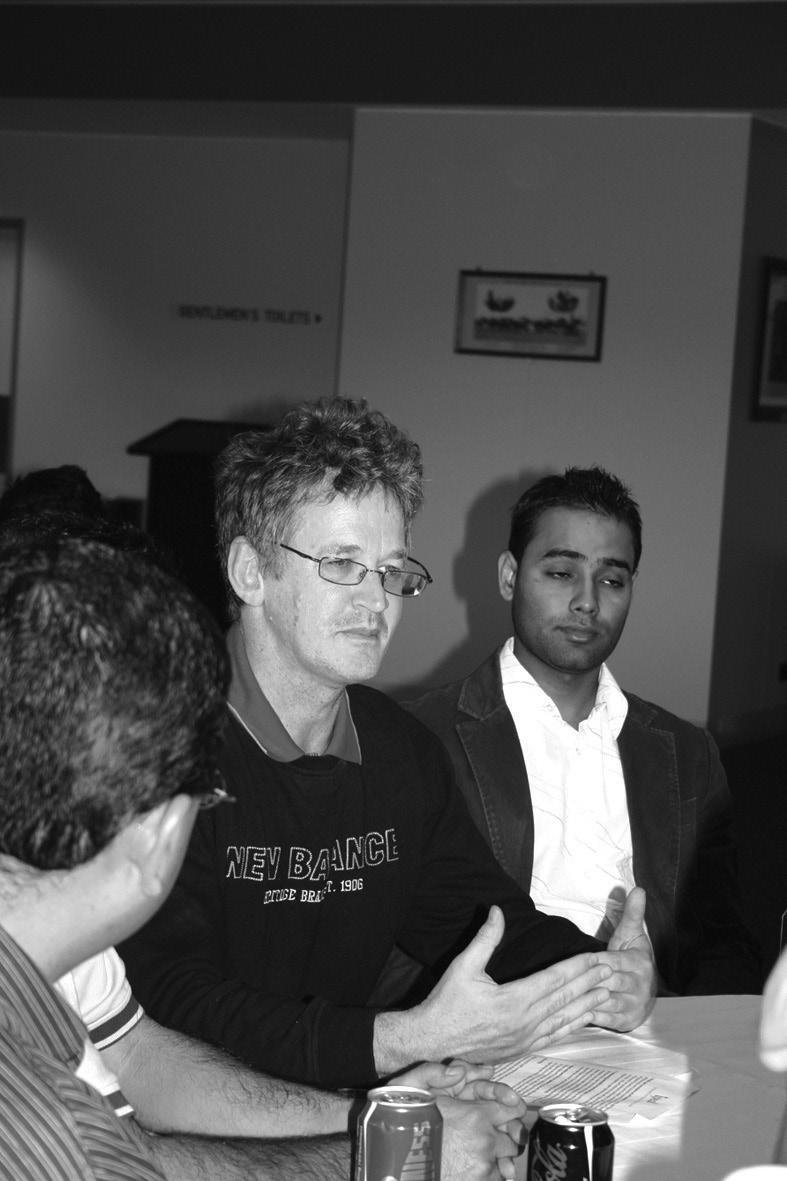
3 minute read
ipeal appeals for urgent reform
from 2010-03 Melbourne
by Indian Link
The government is in the process of overhauling the education industry in a bid to rebuild the reputation of Australian education providers and to ensure long term growth. Education Minister Julia Gillard has recently agreed to an amendment strengthening the Government’s risk management approach. The new regulations are expected to weed out shonky operators and ‘decouple’ links between education and immigration. This has raised concerns that the good operators could go down along with the unscrupulous ones.
Members of the newly formed International Private Education Alliance Limited (ipeal) feel that there is an urgent need for reform of international private education. According to ipeal this industry has been an unqualified economic success story for Australia, worth around $16 billion annually, but it is currently under threat with the imminent loss of thousands of jobs if decisive action is not taken quickly.
The Government’s decision has already impacted the forward projection and business viability of many operators. Many people have lost their jobs within this industry as a result of the collapse of certain colleges. Thousands of students are also adversely affected. While the Government is to be applauded for its attempt to regulate the industry and clean up rogue operators, the whole process and resulting speculations are causing nervousness amongst the stakeholders ipeal is a non-profit organization that was formed in response to numerous enquiries from students, agents and RTOs in the international private education industry. ipeal aims to highlight the positive contribution that their sector has made to Australia. The organization’s emphasis will be on facilitating the development of solutions to the real and unprecedented challenges that the private education industry is now facing. Mike, who is also the spokesman for ipeal, proposed five specific industry reforms at the meeting. These involved safeguarding cash flows for agents and RTOs, education agent representation and self regulation, transparency/predictability in Government policy and agreed service levels from key regulators.
In a meeting held recently at Sandown Racecourse Mike Riddiford, executive director of ipeal said, “International students, colleges and education agents are all facing massive uncertainty as both State and Federal Governments struggle to outline a long term sustainable vision for the international private education sector.” The impromptu meeting was held on the occasion of holi in a bid to acquire the attention of visiting dignitaries. Unknown to most people who were dancing and playing holi outside, a serious discussion was underway in a hall upstairs along with a private lunch organized by ipeal.

The event was attended by Labour MP Tony Lupton, member for Prahran and Opposition leader Ted Baillieu. MP Nick Kotsiras, member for Bulleen was also present. MP Tony Lupton claimed that the Government understands the complexity of the situation and is trying very hard to address the issues. He assured ipeal and those present that he would take their message to the Parliament. Opposition Leader Ted Baillieu expressed his concerns about the rapidly dropping enrollments. He said the long term survival of this industry depends on enrollments and it should be the Government’s top most priority to keep them from dropping further.
The ipeal launch was coordinated by Nitin Gupta and Anchal Agarwal with the support of Australian Indian Innovations Inc (AIII). Liberal party member Nitin Gupta said, “Many families owning Colleges and Education Agencies risk potential bankruptcy unless the state Government takes some action. Thousands of jobs will be lost from within the Indian community in Melbourne. A huge number of students will be without an education option if their colleges collapse. It is high time that the Government takes steps to ensure the healthy survival of education industry.”

There are nearly 1314 universities, colleges and schools registered in Australia to teach overseas students. Under the new rules, institutions registered to teach foreign students will have to re-register under tougher criteria by the end of the year. The decision to drop skills like cooking and hairdressing from the skills shortage list has already hit colleges that specialise in these areas, because they are no longer considered a pathway to permanent residency. The number of overseas students enrolling in Australian courses has plummeted since the media went into a frenzy over racial attacks on Indian students. An industry that was once thriving as the third largest export in Australia is now in disarray. owner of VIT,
Imperial College of Technology and Management and other members of ipeal feel that a comprehensive review of laws and regulations may exorcise some of the problems, but as stakeholders in this industry they should also have some say in the matter. Given the current uncertain climate, ipeal is currently seeking an urgent dialogue with industry regulators on how business risk can be mitigated.











